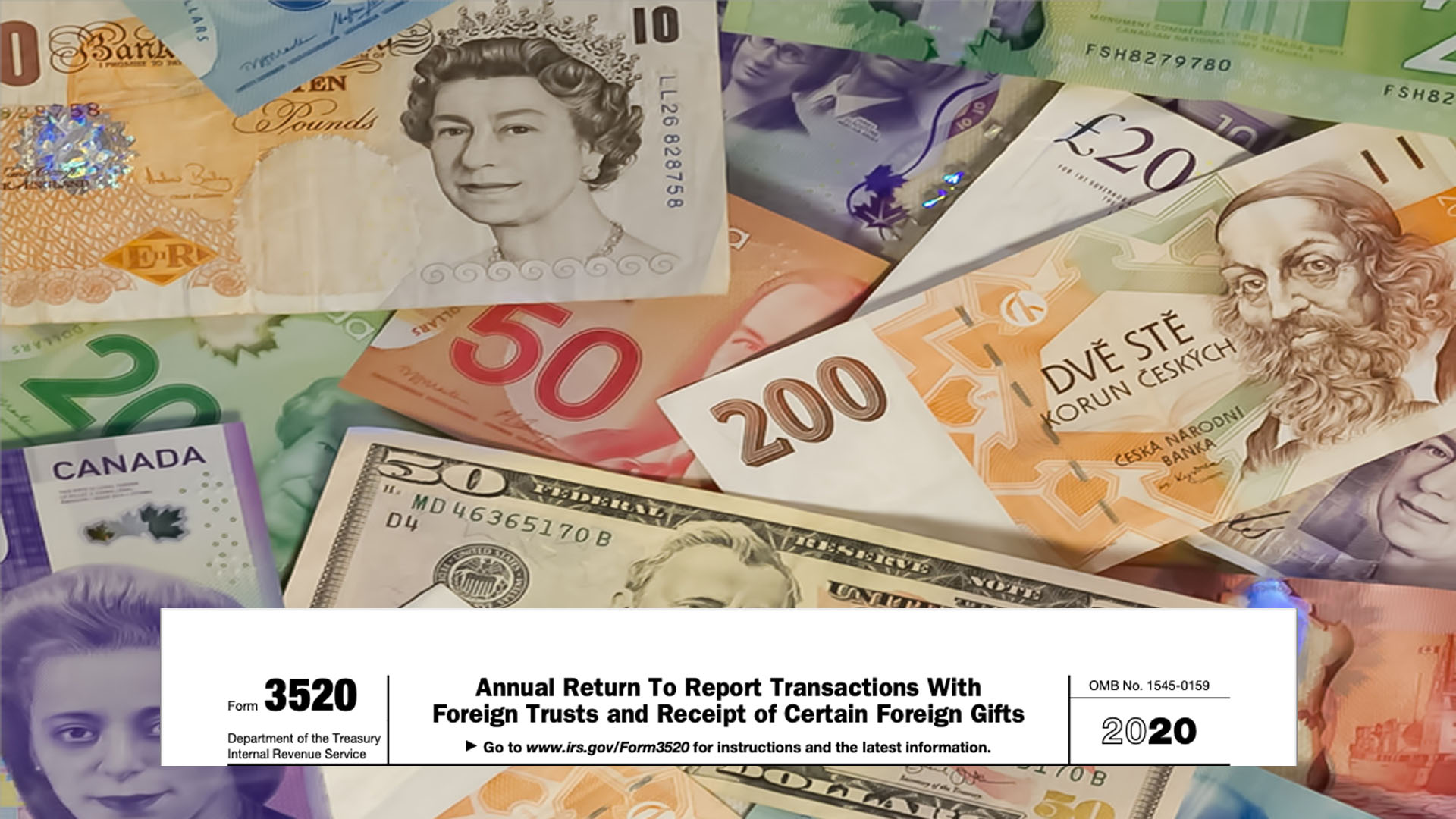Learn the important rules you need to know before you report a foreign gift
Recognizing the Sorts Of International Gifts: Exactly How to Successfully Report Them
Comprehending international gifts is important for organizations passing through complex coverage demands (report a foreign gift). These presents can vary significantly, coming under non-monetary and financial groups. Each type offers distinct obstacles in evaluation and compliance. Organizations has to know the lawful and moral effects involved. Reliable administration and reporting demand clear guidelines and regular training. The concern continues to be: how can companies ensure they meet these responsibilities while keeping openness and accountability?
Meaning and Review of International Presents
Foreign gifts are items or advantages received from foreign entities, which can include federal governments, organizations, or people. These presents may take numerous kinds, including concrete things, solutions, or other kinds helpful that hold worth. The relevance of international presents typically hinges on their potential to influence relationships in between companies, nations, or people. They can be a way of diplomacy, revealing goodwill or promoting teamwork. However, the acceptance of such gifts elevates honest and lawful factors to consider, especially concerning transparency and prospective problems of passion. Receivers must browse intricate regulations that control the reporting and approval of international presents, guaranteeing conformity with both worldwide and residential legislations. Comprehending the interpretation and implications of foreign gifts is essential for people and organizations to preserve integrity and liability in their ventures with foreign entities. This fundamental knowledge sets the stage for a much deeper exploration of the various types of international presents and their coverage demands.
Sorts Of International Presents: Monetary vs. Non-Monetary
Gifts from abroad can be classified into 2 primary types: non-monetary and monetary. Monetary gifts incorporate direct monetary payments, such as money or checks, which can greatly affect the recipient's financial standing. These presents are typically straightforward to value and record, as they entail clear monetary amounts.
Non-monetary gifts, on the other hand, include concrete items such as apparel, art work, or souvenirs, in addition to abstract offerings like experiences or services. While these presents might not have a straight economic influence, they can hold considerable sentimental or social worth. Valuing non-monetary presents can be much more intricate, as it usually requires assessing the product's market worth or relevance to the recipient. Recognizing these 2 groups is essential for accurate coverage, ensuring compliance with regulations keeping and regarding foreign gifts openness in economic ventures.
Lawful and Ethical Implications of Finding Foreign Gifts
While the allure of getting gifts from abroad may appear harmless, the ethical and legal effects connected with such transactions can be significant. Receivers have to navigate complicated guidelines that govern the approval of foreign presents, as failure to do so might cause legal effects, including penalties or permissions. Fairly, the approval of presents from foreign entities can bring about perceptions of preference or problems of passion, especially for people ready of power or public depend on. Such understandings can weaken the stability of organizations and wear down public confidence. Furthermore, the possibility for international impact increases issues regarding nationwide protection and the stability of decision-making processes. As a result, individuals have to very carefully consider not only the validity of accepting international presents but additionally the wider effects on their credibilities and the institutions they represent. Ultimately, thoughtful consideration is vital to keep both lawful conformity and honest standards.
Reporting Demands for International Presents

Understanding the reporting needs connected with getting international presents is essential for individuals in different sectors, specifically those in federal government and civil service. These requirements are developed to promote transparency and protect against problems of rate of interest. Typically, recipients need to report any kind of international gifts exceeding a specified monetary threshold, which varies by territory.
Paperwork is crucial, as receivers have to provide details such as the worth, nature, and resource of the present, in addition to the day it was obtained. Many companies require receivers to send their reports within a marked duration, frequently within 1 month of invoice.

Failing to abide by these reporting commitments can bring have a peek at these guys about extreme effects, consisting of legal fines and damages to one's specialist track record. Therefore, understanding the particular policies appropriate to one's placement and territory is crucial for making certain conformity and keeping honest requirements in public service.

Best Practices for Taking Care Of Foreign Gifts in Organizations
To properly handle foreign gifts within organizations, developing clear policies and treatments is critical. Organizations should start by defining what makes up an international gift and identifying the appropriate coverage requirements to ensure compliance with lawful commitments. Routine training sessions can boost personnel recognition of these plans, advertising a culture of openness and diligence.
Furthermore, companies must execute a central radar to record all foreign presents received, including information such as the value, source, and objective. report a foreign gift. This system must facilitate routine evaluations and audits to evaluate conformity with established policies

Often Asked Questions
Can Foreign Gifts Influence Business Choices or Relationships?
Foreign presents can significantly influence organization choices and partnerships, often developing viewed obligations or predispositions. Such influences might impact arrangements, collaborations, and overall business values, possibly resulting in conflicts of rate of interest or reputational threats.
What Are the Charges for Failing to Report Foreign Present?
Failing to report foreign gifts can cause significant penalties, consisting of penalties, disciplinary activity, or legal consequences. Disagreement threatens openness and might damage online reputations, emphasizing the importance of sticking to reporting guidelines.
Exist Certain Nations With Stricter Present Rules?
Specific nations, like China and Saudi Arabia, impose stricter laws on gifts, showing social standards and governmental oversight. These policies may affect international interactions and demand careful consideration by individuals participating in cross-border partnerships.
How Can Organizations Educate Employees Regarding Foreign Gift Plans?
Organizations can inform staff members concerning foreign gift plans via normal training sessions, extensive handbooks, and clear interaction networks. Involving workshops and real-life situations help reinforce understanding, making sure compliance and understanding of possible honest predicaments.
What Paperwork Is Essential for Foreign Gift Reporting?
Documents for international gift reporting commonly consists of an in-depth summary of the present, its worth, the contributor's info, function of the gift, and any kind of index appropriate plans or guidelines controling the acceptance and coverage of such gifts.
Foreign gifts are items or benefits received from foreign entities, which can include federal governments, individuals, or organizations. Receivers must navigate complex policies that govern the coverage and approval of international presents, making sure compliance with both residential and global regulations. Comprehending the meaning and ramifications of foreign presents is vital for companies and individuals to keep stability and responsibility in check this their dealings with international entities. Recipients should navigate intricate policies that control the acceptance of international gifts, as failing to do so may result in lawful repercussions, including sanctions or penalties. Stopping working to report international gifts can result in considerable penalties, consisting of fines, disciplinary activity, or legal effects.